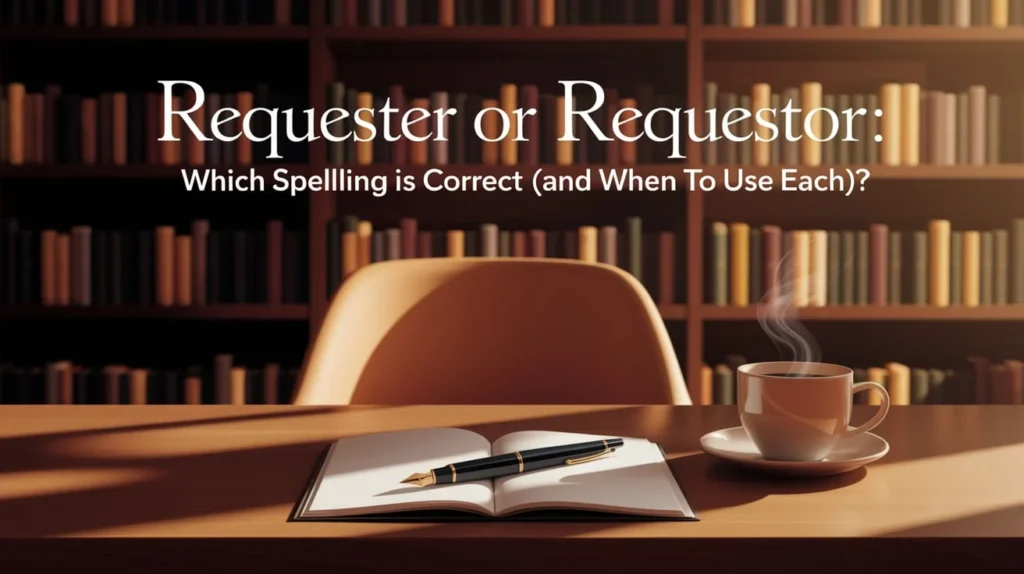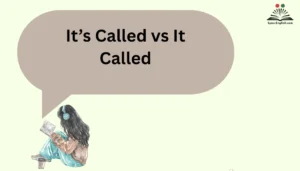The English language has its fair share of tricky spellings and word choices that can leave even the most seasoned writers second-guessing. One such pair is “requester” or “requestor”. While both words seem similar and are used interchangeably in many contexts, they have subtle differences in usage, etymology, and industry preference. So, which one should you use, and when?
In this blog post, we’ll explore the differences between “requester” and “requestor”, delve into their meanings, and uncover when each term is more appropriate. We’ll also look at their origins, provide examples in context, and offer clear guidelines to help you make the right choice every time. By the end, you’ll understand why choosing the correct spelling matters in specific industries, and how to ensure your writing maintains clarity and professionalism.
Let’s get started!
What’s the Difference Between “Requester” and “Requestor”?
At first glance, “requester” and “requestor” may appear to be interchangeable. Both refer to someone who makes a request, but the subtle difference lies in regional preferences and industry-specific uses.
Requester is the more common term used in everyday language, while requestor is more frequently used in legal, technical, or formal contexts. Despite their near-identical meanings, the usage of these two words varies across different fields, and understanding these distinctions will help you navigate them effectively.
Definition and Usage of “Requester”
Requester is the more widely accepted spelling and is used predominantly in informal, business, and technical contexts. It’s a versatile word and can be found across various industries and sectors. Let’s break it down:
Definition of Requester
A requester is simply someone who makes a request. Whether you’re asking for a refund, information, or assistance, the person doing the asking is the requester.
- Usage in Everyday Contexts
- In a customer service setting, the term requester is often used to describe individuals who submit queries or complaints. For example, “The requester has submitted a refund request.”
- In project management, a requester might be the person who requests additional resources or services.
Common Industries That Use “Requester”
- Business
In business settings, requester is frequently used in areas like HR, customer service, and procurement. For example, when employees submit requests for time off, they are often called requesters. - IT and Software Development
In IT, particularly in systems and support roles, the term requester is common. For example, “The requester has filed a bug report.” - Customer Service
When someone contacts support for help, they are typically called a requester. The support team might say, “We’re reviewing the requester’s issue.”
Real-World Examples of Requester
- “The requester submitted a form to access the service.”
- “As a requester, she expects a response within 24 hours.”
Definition and Usage of “Requestor”
Requestor, while similar, is somewhat more formal and is generally used in specific professional and legal contexts. It is also less common in everyday use but holds a strong presence in particular fields.
Definition of Requestor
A requestor is, like a requester, someone who makes a request. However, requestor is more often used in technical documentation, legal documents, and in government procedures.
Common Industries That Use “Requestor”
- Legal
In legal contexts, requestor is often used to describe a person making a formal request. For instance, “The requestor seeks the release of the document.” - Government and Regulatory Bodies
Many official forms and procedures use requestor. For example, in government filings or policy documents, you may come across the term in sentences like, “The requestor must submit this form before the deadline.” - Healthcare and Medical Research
In medical settings, requestor may be used to describe individuals requesting records or permissions for research. For instance, “The requestor must submit their credentials before accessing patient data.”
Real-World Examples of Requestor
- “The requestor has submitted a formal complaint to the court.”
- “As the requestor of the grant, you are required to provide additional documentation.”
Origins and Etymology: “Requester” vs “Requestor”
Both requester and requestor share the same root—“request”—which comes from the Latin word “requestare,” meaning “to ask.” However, the suffixes “-er” and “-or” are where the two words begin to differ.
- The -er suffix typically indicates an agent or person who performs an action, which makes requester more common and widely used.
- The -or suffix, historically, tends to be used in formal or legal contexts. In earlier times, -or was often attached to words in legal jargon, making requestor sound more official or technical.
Despite both forms emerging from similar linguistic roots, requester has become the more modern and preferred choice in everyday language, while requestor remains somewhat antiquated but still prevalent in formal documentation and legal language.
When to Use “Requester” and When to Use “Requestor”
The key to choosing the correct spelling comes down to context. Below is a quick guide to help you navigate these terms with ease.
| Context | Preferred Spelling | Reason/Notes |
| Business | Requester | Common in customer service, procurement, HR |
| Legal Documents | Requestor | Formal, often used in statutes, legal filings |
| IT/Software | Requester | Widely accepted in technical support and systems |
| Healthcare | Requestor | Used in official forms and research documentation |
If you’re writing in a formal context such as a legal document, a contract, or an official policy, requestor would likely be the preferred choice. On the other hand, for more informal or business-oriented contexts, requester should be your go-to term.
Examples of “Requester” and “Requestor” in Real Sentences
Requester in Context
- “The requester must submit the proper documentation before proceeding.”
- “As a requester of the service, you’ll receive a confirmation email shortly.”
- “The requester had their question answered within an hour.”
Requestor in Context
- “The requestor must provide evidence to substantiate the claim.”
- “We cannot process the application until the requestor provides additional details.”
- “As the requestor, you are entitled to a hearing on this matter.”
Synonyms and Alternatives for “Requester” and “Requestor”
If you want to avoid redundancy or use a more specific term, here are some alternatives and synonyms you can consider:
| Term | Use Case | Tone/Formality |
| Applicant | Job applications, grants | Formal |
| Petitioner | Legal documents, courts | Very Formal |
| Claimant | Insurance/legal matters | Neutral |
| Inquirer | Customer support, inquiries | Semi-formal |
| Submitter | Online forms, surveys | Neutral |
These alternatives may better fit specific situations. For instance, applicant is ideal for job applications, while petitioner is reserved for legal cases.
Frequently Asked Questions (FAQ)
Is “Requestor” grammatically incorrect?
No, requestor is grammatically correct. However, it’s less common and used more in formal, legal, or technical writing.
Why does Word/Grammarly flag “Requestor”?
Many spelling and grammar checkers, including Grammarly, default to requester due to its higher usage frequency in contemporary writing. Requestor is still correct but more niche.
Can I use either in academic writing?
In academic writing, requester is generally preferred, but requestor may be acceptable depending on the context. It’s important to check style guides like MLA or APA.
Which is more common globally?
Globally, requester is the more common term, especially in informal and business contexts. Requestor is often seen in specific legal or government documents.
Final Verdict: Which Spelling Should You Use?
In conclusion, both “requester” and “requestor” are correct, but the key to choosing the right one lies in understanding context. For most cases, requester is your best bet—it’s simpler, more widely accepted, and fits well in everyday writing.
However, when writing formal documents, especially in legal or governmental contexts, requestor is often the preferred term. Regardless of which you choose, consistency is crucial. Always stick with one spelling throughout your document to avoid confusion.
Bonus: Tools to Help You Choose the Right Spelling
When in doubt, rely on tools like Grammarly and ProWritingAid to check spelling and grammar. Additionally, reputable dictionaries like Merriam-Webster and Oxford provide helpful guidance on variant spellings.
Conclusion
While it may seem like a small detail, choosing between requester and requestor can enhance the clarity and professionalism of your writing. Whether you’re drafting a legal document, responding to customer service inquiries, or writing an email, knowing when to use which term makes all the difference. Stay consistent, and you’ll look like a pro!

Emma Rose is an experienced English educator, writer, and language enthusiast dedicated to helping learners unlock the full power of the English language. At SynoEnglish, she shares practical grammar tips, clear explanations, and real-world language insights to make learning both effective and enjoyable. With a passion for words and a love for clarity, Emma’s goal is to help readers speak and write with confidence.



